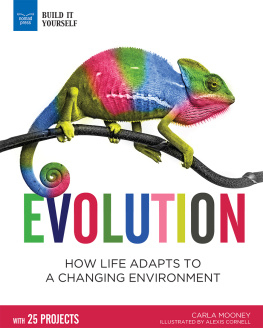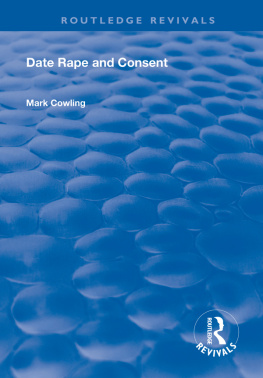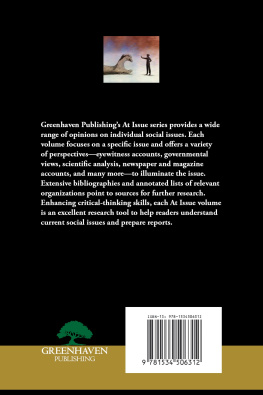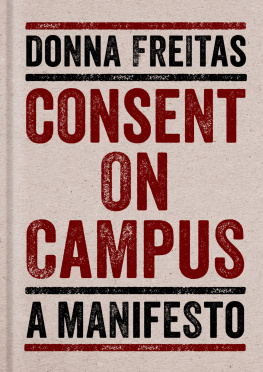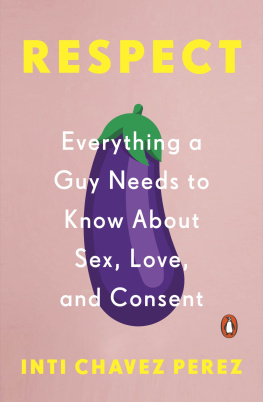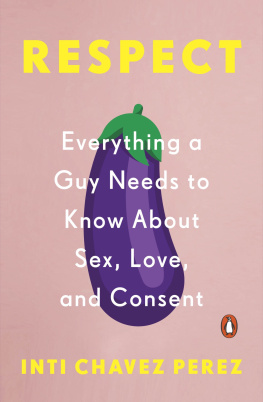Published in 2018 by The Rosen Publishing Group, Inc.
29 East 21st Street, New York, NY 10010
Copyright 2018 by The Rosen Publishing Group, Inc.
First Edition
All rights reserved. No part of this book may be reproduced in any form without permission in writing from the publisher, except by a reviewer.
Library of Congress Cataloging-in-Publication Data
Names: Mooney, Carla, 1970 author.
Title: Everything you need to know about sexual consent / Carla Mooney.
Description: New York : Rosen Publishing, 2018. | Series: The need to know library | Includes bibliographical references and index. | Audience: Grades 712.
Identifiers: LCCN 2017003222 | ISBN 9781508174127 (library-bound) | ISBN 9781508174103 (pbk.) | ISBN 9781508174110 (6-pack)
Subjects: LCSH: Sexual consentJuvenile literature. | Sexual ethicsJuvenile literature. | RapeJuvenile literature. | Youth Sexual behaviorJuvenile literature.
Classification: LCC HQ32 .M647 2018 | DDC 176/.4dc23
LC record available at https://lccn.loc.gov/2017003222
Manufactured in the United States of America
CONTENTS
INTRODUCTION
CHAPTER ONE
WHAT IS SEXUAL CONSENT?
CHAPTER TWO
SEXUAL CONSENT ON CAMPUS
CHAPTER THREE
SEXUAL CONSENT AND THE LAW
CHAPTER FOUR
HEALING FROM SEXUAL ASSAULT AND RAPE
GLOSSARY
FOR MORE INFORMATION
FOR FURTHER READING
BIBLIOGRAPHY
INDEX
INTRODUCTION
I n May 2014, at an elite prep school in New Hampshire called St. Pauls School, eighteen-year-old Owen Labrie invited a fifteen-year-old female student to hang out. The meeting was part of a school tradition known as the senior salute, in which graduating seniors asked out younger students. The dates often led to sexual activity, anything from kissing to sex.
Labrie had a key to a mechanical room at the school and took the girl there. According to Labrie, the two kissed, fondled, and engaged in some sexual activity. He also claimed that their sexual activity was consensual.
However, the girl did not agree. She insisted that while she had initially agreed to some kissing and fondling, she had told Labrie to stop several times. He continued and went on to have sex with her. A few days later, the girl reported the encounter to the school. As required by law, the school reported the case to local law enforcement. After an investigation, prosecutors charged Labrie with felony sexual assault, along with several other charges.
The case against Labrie hinged on the issue of sexual consent. New Hampshire is one of the few states that does not require prosecutors to show force was used to prove sexual assault. At the 2015 trial, the girl testified that she felt like she was frozen during the sexual encounter. Labrie claimed that he believed she gave consent because she did not stop his advances.
In 2015, eighteen-year-old Owen Labrie was tried in a criminal court like this one.
After hours of deliberations, the jury found Labrie not guilty of the most serious charge, felony sexual assault. They convicted him on several lesser misdemeanor charges, including having sex with a minor and soliciting minors for sex using the internet. As punishment, Labrie served one year in a county jail. He also was required to register as a sex offender for the computer crime, which he later appealed.
In recent years, communities and schools across the United States have been shocked by reports of rape and sexual assault. In a September 2015 survey by the Association of American Universities, more than 23 percent of female college students said they had experienced some form of unwanted sexual contact, which ranged from kissing and touching to rape. The contact occurred by force or threat of force, or while the women were incapacitated by alcohol or drugs. The results warrant the attention and concern of everybody in our community, said Drew Faust, president of Harvard University in 2015. Sexual assault is intolerable, and we owe it to one another to confront it openly, purposefully, and effectively. This is our problem.
As part of the effort to end sexual assault, awareness and understanding of sexual consent has become an increasingly important issue across the country. Colleges and communities have begun to discuss sexual consent and redefine what exactly consent means. Many have started education programs to teach students about affirmative consent, healthy relationships, and respect, as well as what sexual assault is and how to report it.
CHAPTER ONE
WHAT IS SEXUAL CONSENT?
I n most situations, society understands consent, but when it comes to sex, that is not necessarily the case. According to a 2015 poll by the Washington Post-Kaiser Family Foundation, college students have different ideas about what consent is. In the poll, at least 40 percent of students said that certain unspoken actionssuch as nodding, taking off clothes, or getting a condomcounted as consent for sex. However, another 40 percent of students said that those same actions were not consent.
In a 2015 article in the Washington Post, Holly Copeland, a twenty-two-year-old graduate of Indiana State University, said she believes that nods should not be considered consent because they can be misunderstood and manipulated. She also believes that taking off ones clothes is not a green light for sex. If a stripper is taking off her clothes, does that mean shes consenting for the patron to touch her? No. Theres a line there, said Copeland.
Most people agree that sexual consent is a voluntary agreement between two people to participate in sexual activity, specifically by saying yes. It may seem pretty simple, but in real life, that is not always the case.
The woman on the left might be nodding, showing her consent to or agreement with something. Her facial expression shows that she appears to be enjoying the conversation they are having.
AFFIRMATIVE CONSENT
For many years, no means no was the socially acceptable standard for sexual consent. A person who did not want to participate in sexual activity, or let such activity go any further once started, could simply say no. But under this definition, not saying anything could be interpreted as giving consent. It also put the burden on victims of sexual assault, making it their responsibility to show that they tried to resist.
In recent years, some schools and communities have begun to redefine what sexual consent is. They define consent as showing active and enthusiastic agreement. Instead of no means no, sexual consent is now defined as yes means yes. They hope that this new consent standard will prevent sexual assault.
Affirmative consent occurs when a person gives a clear, affirmative yes before engaging in sexual activity. Therefore, silence or not saying no to sexual activity does not count as consent. In a 2015 New York Times article, University at Albany (NY) sex educator Carol Stenger, said that affirmative consent is like borrowing a cell phone. You wouldnt just take it. Youd ask for it first, Stenger said.



